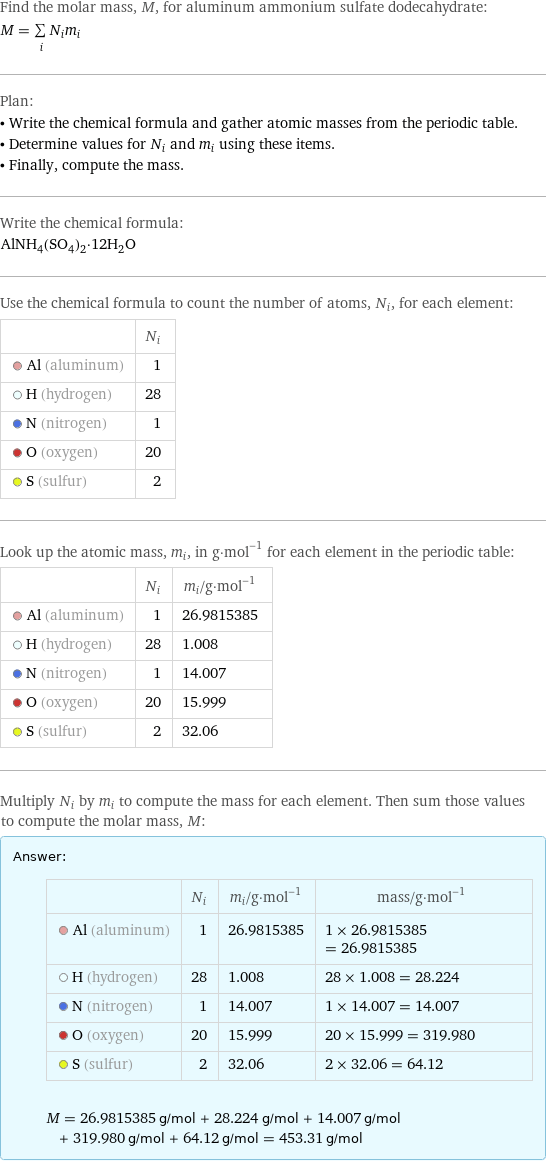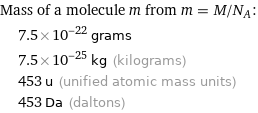Input interpretation

aluminum ammonium sulfate dodecahydrate | molar mass
Result

Find the molar mass, M, for aluminum ammonium sulfate dodecahydrate: M = sum _iN_im_i Plan: • Write the chemical formula and gather atomic masses from the periodic table. • Determine values for N_i and m_i using these items. • Finally, compute the mass. Write the chemical formula: AlNH_4(SO_4)_2·12H_2O Use the chemical formula to count the number of atoms, N_i, for each element: | N_i Al (aluminum) | 1 H (hydrogen) | 28 N (nitrogen) | 1 O (oxygen) | 20 S (sulfur) | 2 Look up the atomic mass, m_i, in g·mol^(-1) for each element in the periodic table: | N_i | m_i/g·mol^(-1) Al (aluminum) | 1 | 26.9815385 H (hydrogen) | 28 | 1.008 N (nitrogen) | 1 | 14.007 O (oxygen) | 20 | 15.999 S (sulfur) | 2 | 32.06 Multiply N_i by m_i to compute the mass for each element. Then sum those values to compute the molar mass, M: Answer: | | | N_i | m_i/g·mol^(-1) | mass/g·mol^(-1) Al (aluminum) | 1 | 26.9815385 | 1 × 26.9815385 = 26.9815385 H (hydrogen) | 28 | 1.008 | 28 × 1.008 = 28.224 N (nitrogen) | 1 | 14.007 | 1 × 14.007 = 14.007 O (oxygen) | 20 | 15.999 | 20 × 15.999 = 319.980 S (sulfur) | 2 | 32.06 | 2 × 32.06 = 64.12 M = 26.9815385 g/mol + 28.224 g/mol + 14.007 g/mol + 319.980 g/mol + 64.12 g/mol = 453.31 g/mol
Unit conversion

0.4533 kg/mol (kilograms per mole)
Comparisons

≈ 0.63 × molar mass of fullerene ( ≈ 721 g/mol )

≈ 2.3 × molar mass of caffeine ( ≈ 194 g/mol )

≈ 7.8 × molar mass of sodium chloride ( ≈ 58 g/mol )
Corresponding quantities

Mass of a molecule m from m = M/N_A: | 7.5×10^-22 grams | 7.5×10^-25 kg (kilograms) | 453 u (unified atomic mass units) | 453 Da (daltons)

Relative molecular mass M_r from M_r = M_u/M: | 453